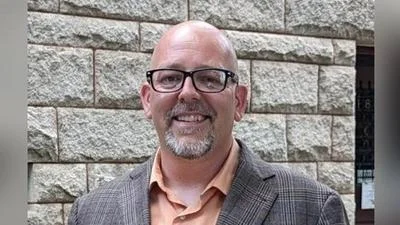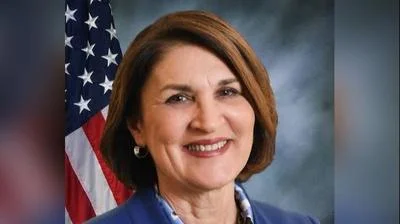Pennsylvania's Democrat Gov. Tom Wolf gestures during comments just prior to singing pension reform in that state.
Pennsylvania's Democrat Gov. Tom Wolf gestures during comments just prior to singing pension reform in that state.
Illinois’ pension crisis is dire but will ultimately follow the precedent set by Pennsylvania, which has passed bipartisan legislation to deal with its own such crisis, a think tank analyst from that state said on a radio talk show recently.
"I definitely don't envy your situation, but eventually, the math is going to win," Bob Dick, senior policy analyst with the Commonwealth Foundation, said on "Illinois Rising." "You can only ignore it for so long."
"Illinois Rising" is co-hosted by Illinois Opportunity Project co-founder Dan Proft, a principal of Local Government Information Services, which owns this publication.

Commonwealth Foundation Senior Policy Analyst Bob Dick
Pennsylvania's landmark pension reform bill, which the Washington Post called "a smart step toward avoiding financial disaster," was signed into law by Pennsylvania's Democratic Gov. Tom Wolf ion June 12.
"This is a significant achievement for everyone who has worked on this issue," Wolf said in comments just prior to signing.
The signing ceremony followed an overwhelmingly bipartisan vote in the Pennsylvania General Assembly: 143-53 in the House and 40-9 in the Senate.
It was a long-haul development that was slow by Wolf's early insistence that Pennsylvania didn't have a pension crisis; he was eventually convinced otherwise, Dick said.
"This definitely was a decade in the making," he said. "I know Gov. Wolf. He came at the tail end of this, but the Commonwealth Foundation and other reformers have been laying the groundwork for pension reform for a while. So I think, probably, the governor took a look at the numbers, and we have math on our side here. Really, if you look at what the independent fiscal office has said, which is basically the state equivalent of the Congressional Budget Office at the federal level, what they found was that pensions were going to consume about 10 percent of the general fund budget by 2019 to 2020. That's more than a doubling of the share of pension payments in 2011 to 2012. You can't simply ignore that."
Pension costs were swallowing more than 25 percent of the Illinois budget by last summer, and while the pension crisis didn't become that dire in Pennsylvania, Dick said he sees other similarities.
"We basically are in the same boat as Illinois in that the [Pennsylvania Commonwealth] Constitution protects benefits that are already earned," he said. "So, really, it's a stacking of the deck in favor of public employees, because even if lawmakers want to change benefits already earned, that would be most likely unconstitutional. There's even been some debate about changing benefits not yet earned, and still there are some questions about the constitutionality of that proposal as well."
One difference between Pennsylvania and Illinois is the part that public sector unions played -- or didn't play -- in the Keystone State's resolution of its pension crisis, Dick said.
"They definitely are a force here in Pennsylvania, but on this particular issue, they decided to sit it out," he said. "I know there was one local union in Philadelphia, the Philadelphia Federation of Teachers -- they were really banging the drum to oppose any sorts of reform -- but other than that, we didn't hear very much from unions. They were basically like, 'Well, this isn't really a reform that we would support, and we would rather you not advance it to the Legislature,' and they didn't want the governor to sign it. But nevertheless, they weren't, I guess, as interested or as invested."
While that might be an unheard-of position for Illinois public sector unions to take, it was the only one for most public employee unions if pension reform was going to pass, which led to a calculated decision by Pennsylvania public sector union leaders, Dick said.
"From their perspective, it could have been worse," he said. "That's basically what this amounts to."
While Pennsylvania taxpayers still have to deal with $70 billion in unfunded liabilities, the newly passed legislation will affect new state and public school employees, who can choose from among three retirement plans that include a partial-defined contribution and a full-defined contribution plan similar to 401K-style options common in the private sector. The legislation also increases funding of existing retirement plans and provides retirement security for beneficiaries.






 Alerts Sign-up
Alerts Sign-up